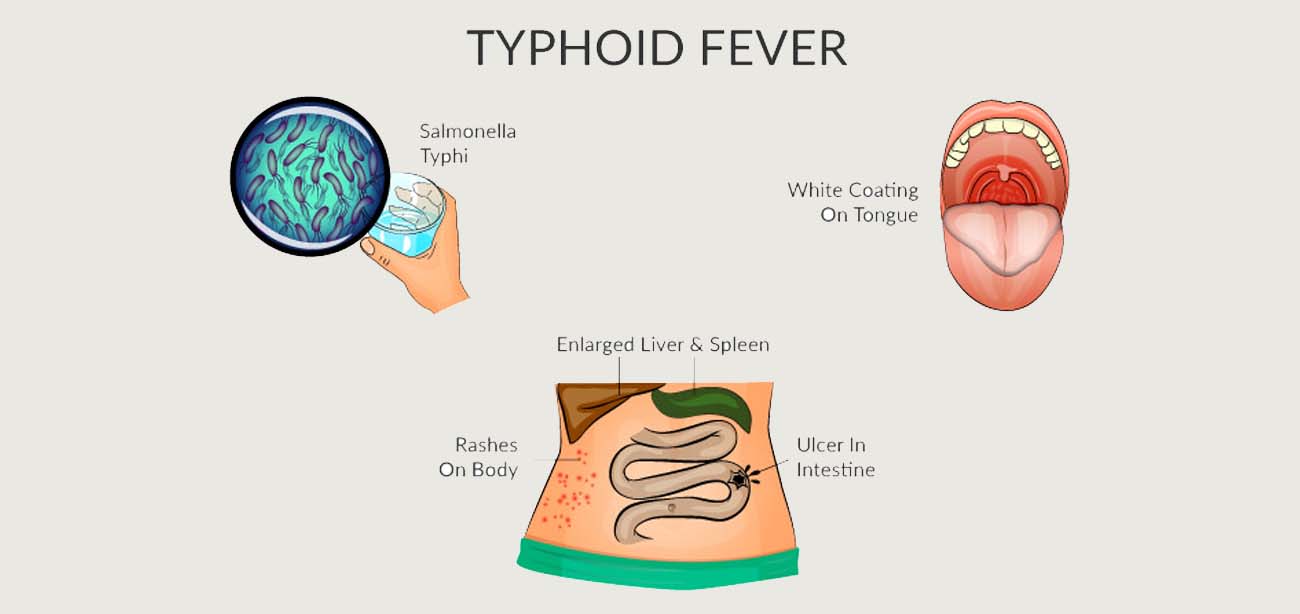Typhoid Fever

Salmonella typhi bacteria cause typhoid fever. Although Typhoid fever is uncommon in industrialized countries, it prevails as a severe health threat in the developing world, particularly for children.
Typhoid fever spreads via contaminated food and water or by close association with someone infected. Typhoid symptoms usually involve a high fever, headache, abdominal pain, constipation, or diarrhea.
A diagnosis of typhoid fever is made by analyzing samples of blood, poo stools, or urine. Typhoid fever can be treated with antibiotics, and patients start recovering within a few days of starting treatment. Typhoid is not life-threatening, but a small number of deaths may occur due to complications.
